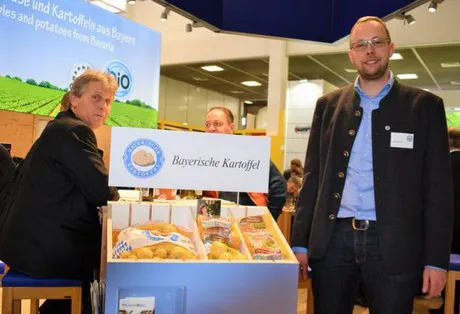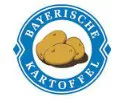While German asparagus shoots are already sticking their heads out of the ground, local early potatoes are still quite a long way off. Despite a sudden cold front in the first week of April, the tubers are already in the ground in Bavaria and ripening splendidly, but the first packable early potatoes will not be available until the end of June.
"Our warehouses are well stocked, so we can still draw on impeccable potatoes from the region at the start of the asparagus season and do not have to resort to goods from abroad," says Johann Graf, managing director of Bayerische Kartoffel Ltd. In view of the current residual stocks, the last old potatoes should be expected at the beginning/mid-May at the latest.

As managing director of Barischen Kartoffel Ltd, Johann Graf represents farmers and traders in the Free State of Bavaria.
The Bavarian harvest in 2021 was down on the previous year at around 1.65 million potatoes. Incidentally, with around 39,000 hectares under cultivation, the Free State is the second-largest potato producer in Germany. But the ongoing Corona issue, as well as the Ukraine war, is affecting the Bavarian potato sector as well, Graf said. "We are seeing some frustration among farmers, because there have been nice price increases for grain, while contract prices for potatoes have softened during the crisis. Right now, there are slight price increases, yet not on the scale we see in cereals."
Several alternatives to growing potatoes
On the production side, the situation has also rapidly escalated in the wake of the Ukraine war, he said. Graf says, "Nitrogen fertilizer prices have roughly quadrupled. That means those who didn't stock up in the fall had to accept huge additional costs." In the short term, there are several alternatives to growing potatoes, the potato expert continues. "Malting barley is becoming more established as a low-input crop, and its production requires both less capital and less fertilizer. Grain is also an interesting crop for many growers, not least because of its low labor requirements. Legumes such as peas and soybeans are establishing themselves as a third alternative to potatoes."
Reduction in acreage expected
According to Graf, the current course being set will also influence the near future of the potato industry. "If the wrong signals are sent now, it may indirectly lead to one or another grower abandoning potatoes in the future. Although we don't have concrete numbers yet, I already expect a reduction in acreage this year."
For more information:
Johann Graf
Bayerische Kartoffel GmbH
Max-Joseph-Straße 9
80333 München
Tel: 089 55 873 111
[email protected]
bayerische-kartoffel.de/
